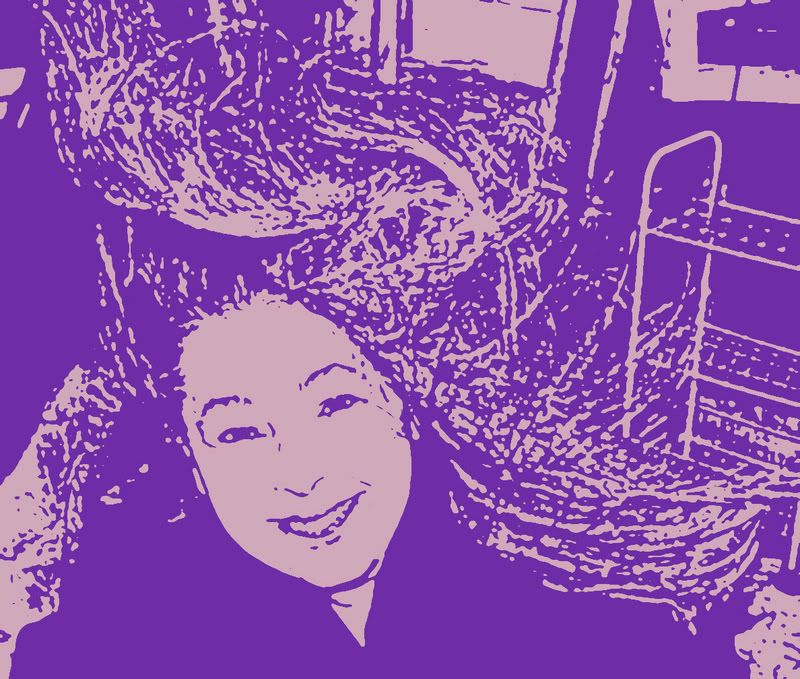
Roman poet Publius Ovidius Naso, or more simply Ovid, is credited with fixing the notion of transformation ~ all things change, nothing perishes ~ in Western mind forever ago.
Although he's afforded glory for coining the phrase and lauded as a muse for medieval poets, he didn't hold sole intellectual property rights to the famous observation. One of his predecessors, Greek philosopher Heraclitus of Ephesus, made similar statements ~ all things flow, nothing abides & nothing endures but change ~ several centuries before Ovid further tweaked them.
In the East, possibly contemporaneously with Heraclitus, Lao Tzu ~ the Old Sage or Old Master and legendary author of the Tao Te Ching ~ was likewise deeply into the concepts of rhythm and transformation. The body of thought forms that nurtured him, moreover, predated him.
China's oldest classical text, the I Ching aka Book of Changes, originated during the reign of Emperor Fu Hsi, circa 2953-2838 bce. So, for at least two millennia before Lao Tzu tackled the untackable and spoke of that which cannot be spoken, implicit patterns of change were not only recognized ... they were studied and honored.
It's easy to see how Asia Minor, poised between worlds, served as a cultural passageway. It's no big step to acknowledge it as a scholastic melting pot where orators, philosophers, students and teachers flocked to water in wells of corroboration and inspiration. Yes, Anatolia was a portal on an ancient land based web of dusty trails.
Be that as well and good as it was, perceptions of change before codification were no more anchored in any geographical location than they were tied to a single individual or school of thought. Recognition of the process of transformation didn't require an academic degree. It wasn't an insight specific to any one civilization: East or West, North or South.
All that exists, exists in consciousness. Dry rocks get wet in rain. Trees weather seasons, their life sap pulsing in time with temperature. Coral reefs blossom and spawn in the wake of a full moon. Bears hibernate; butterflies migrate. Babies become children and grow to old age. Every form of consciousness that registers flux is familiar with change.
Change is fundamental. It comes with the teritory ~ any territory: ... physical, emotional, mental, spiritual.
It doesn't matter what names and analogies we use to tag and describe it. It doesn't matter if we like or loathe it. It doesn't matter if we anticipate it and cooperate or are overcome in surprise. It proceeds, invited or not. It makes no apologies. Individuals or entire civilizations, it treats the small and the large without prejudice.
Although he's afforded glory for coining the phrase and lauded as a muse for medieval poets, he didn't hold sole intellectual property rights to the famous observation. One of his predecessors, Greek philosopher Heraclitus of Ephesus, made similar statements ~ all things flow, nothing abides & nothing endures but change ~ several centuries before Ovid further tweaked them.
In the East, possibly contemporaneously with Heraclitus, Lao Tzu ~ the Old Sage or Old Master and legendary author of the Tao Te Ching ~ was likewise deeply into the concepts of rhythm and transformation. The body of thought forms that nurtured him, moreover, predated him.
China's oldest classical text, the I Ching aka Book of Changes, originated during the reign of Emperor Fu Hsi, circa 2953-2838 bce. So, for at least two millennia before Lao Tzu tackled the untackable and spoke of that which cannot be spoken, implicit patterns of change were not only recognized ... they were studied and honored.
It's easy to see how Asia Minor, poised between worlds, served as a cultural passageway. It's no big step to acknowledge it as a scholastic melting pot where orators, philosophers, students and teachers flocked to water in wells of corroboration and inspiration. Yes, Anatolia was a portal on an ancient land based web of dusty trails.
Be that as well and good as it was, perceptions of change before codification were no more anchored in any geographical location than they were tied to a single individual or school of thought. Recognition of the process of transformation didn't require an academic degree. It wasn't an insight specific to any one civilization: East or West, North or South.
All that exists, exists in consciousness. Dry rocks get wet in rain. Trees weather seasons, their life sap pulsing in time with temperature. Coral reefs blossom and spawn in the wake of a full moon. Bears hibernate; butterflies migrate. Babies become children and grow to old age. Every form of consciousness that registers flux is familiar with change.
Change is fundamental. It comes with the teritory ~ any territory: ... physical, emotional, mental, spiritual.
It doesn't matter what names and analogies we use to tag and describe it. It doesn't matter if we like or loathe it. It doesn't matter if we anticipate it and cooperate or are overcome in surprise. It proceeds, invited or not. It makes no apologies. Individuals or entire civilizations, it treats the small and the large without prejudice.
Change is the most dependable aspect of reality-experience there is.

No comments:
Post a Comment